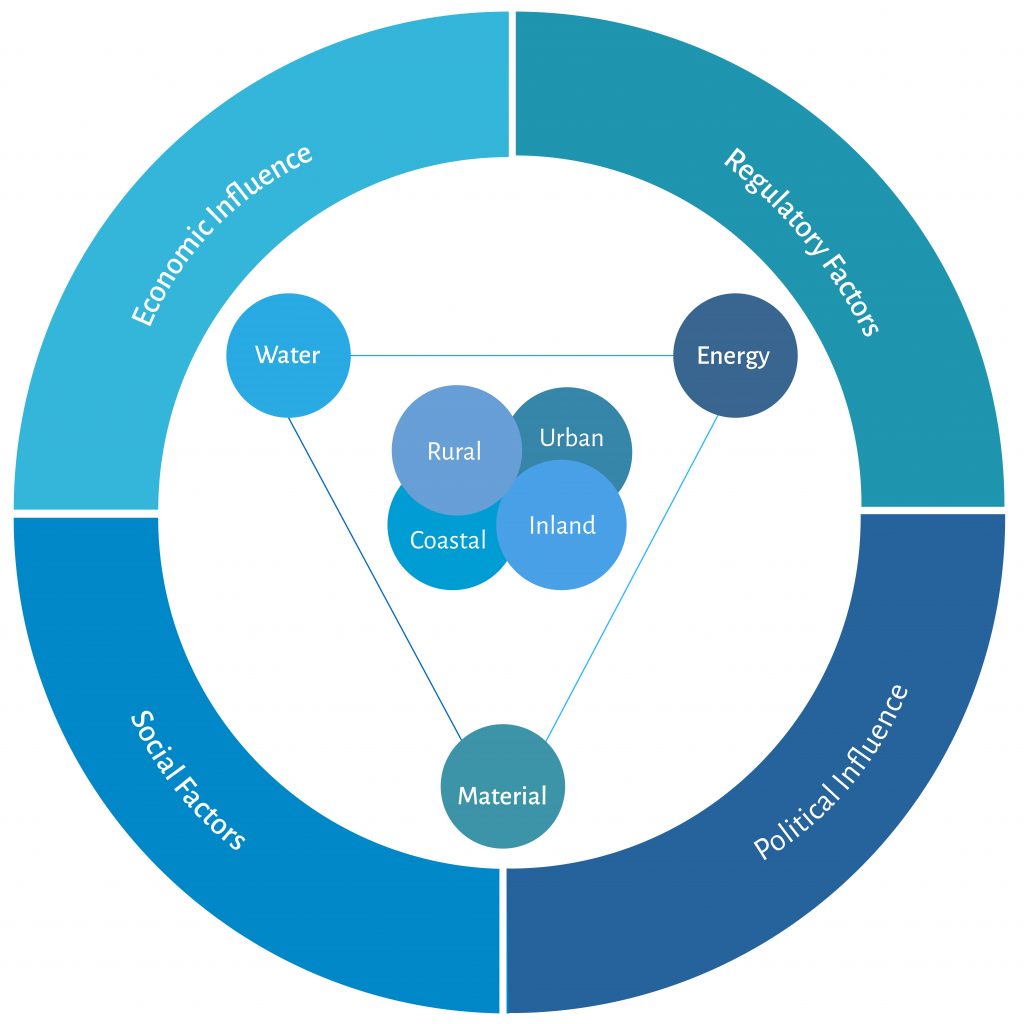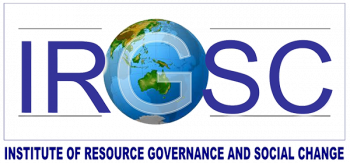Looking at how material, water and energy utilization to create many forms of livelihood activities from securing water, fodder, medicine, shelter to clothing and other improvement activities. Our research activities revolve around emphasizing system perspective in environmental analysis and decision making. Urban areas of Indonesia, for instance, are faced with wasteful use of resource. For instance, building and construction sector, consumed significantly large amount of energy for HVAC due to the realm of the design that is unresponsive to the Indonesia climate. Furthermore, the use of energy for domestic use is still dominated by unsustainable energy sources, while the cleaner energy options are explorable.
Other sectors such as water material are no different. Wastewater, both domestic and industrial, is dumped untreated and polluting water bodies, if not underground water, and eventually flushed away to the sea. This practice has evidently created livelihoods problem for land- and water-based livelihood. This often creates more problem to the disadvantaged populations, and eventually increase poverty. Similar problems are faced by material management, where the disposal side is still facing various challenge and its extraction side is faced with many direct environmental impacts.

Research scope of resource-efficient livelihoods
Resource-efficient livelihoods (REL) focuses how water, energy and material are utilized and thus circulating in different spaces including rural-urban and coastal-inland areas. REL understands that spatial developments are always shaped by economic and political influence as well as social an regulatory factors, and create interactions between human and non-human system. The research group aims to study how material, water and energy (have been and) can be better utilized with a more efficient governance in both rural and urban settings, and especially on the perspective of creating a more sustainable livelihood.
Contact Person
l.kini@irgsc.id
Related Projects
Research:
- Water scarcity in Kupang
- Integrated water management in Tilong Dam, West Timor
- Impact of dams on agriculture, groundwater and river ecology in Timor
- Decentralised wastewater management in the City of Kupang
- Political-economy analysis of water infrastructure development in Timor
- Energy system for small islands
- Municipal waste management
- LCA, EIA, SFA, MCA, Technology assessment, and CBA
Project and advocacy:
- Sustainable seaweed farming in Savu Island
- Education for vernacular materials preservation in Savu Island
